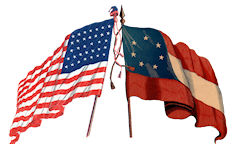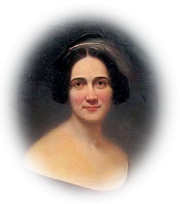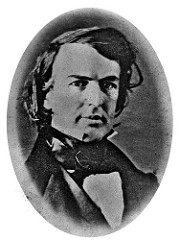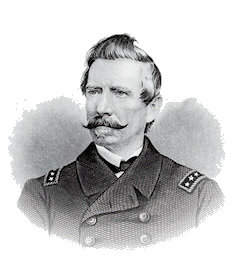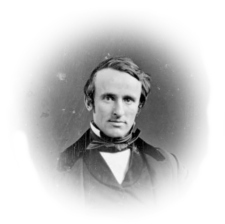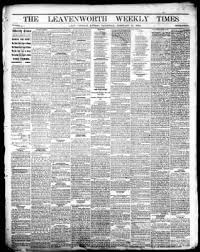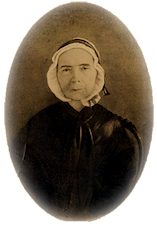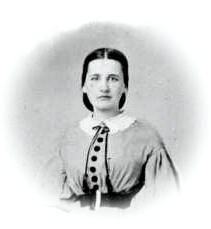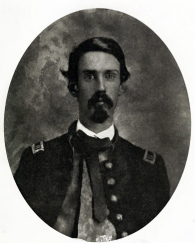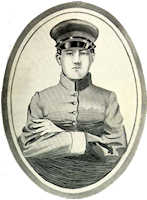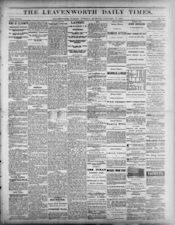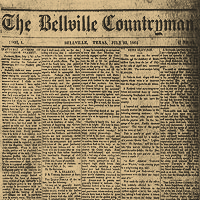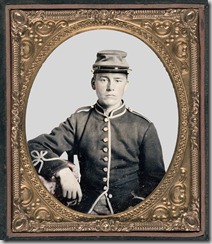August 2.–Up to this date Indiana has equipped and sent into the field thirteen regiments of infantry and two companies of cavalry. Two additional regiments of infantry are now ready to march, and an entire regiment of cavalry will be ready in a short time. Seventeen additional regiments of infantry are now forming, and will be put into the service as speedily as possible. This will make thirty-three regiments raised and to bb raised in Indiana–a force of about 86,000 men, including three artillery companies now about ready for active service. This is over 3,000 men for each Congressional District, or about every fortieth person in the State.–Indianapolis Journal, August 3.
–The United States steamer Albatross, Captain Prentiss, arrived at Philadelphia, Pa., from Hampton Roads, having in charge the schooner Enchantress, which was captured July 6th, 260 miles southeast of Sandy Hook, by the privateer Jeff. Davis, and on attempting to take her into the port of Charleston, S. C., on the 22d of July, was re-captured with five men of the privateer’s crew on board, west of Cape Hatteras. The Enchantress cleared from Boston on the 29th of June, for ports in Cuba. All the crew except Garrick (negro cook) were removed to the Jeff. Davis, and a crew from the privateer, consisting of W. W. Smith, of Savannah, Ga.; Ebin Lane, of West Cambridge, Mass.; Thomas Qnigley, of New York; Daniel Mailings, of Charleston, S. C.; and E. Rochford, of Liverpool–put on board to take her to Charleston, the negro Garrick being retained as cook. After the schooner had left the Jeff. Davis, Garrick meditated getting possession of the Enchantress, but delayed the execution of his plan, so as to sound the views of a portion of the crew. Before coming to any definite conclusion the steamer Albatross hove in sight, and as soon as the crew on board the Enchantress discovered the character of the steamer they “fought shy.” When the Albatross approached and the Enchantress was hailed, a reply came that “the schooner was from Newburyport, and bound to Santa Cruz.” Just at that moment the negro Garrick appeared on the gunwale of the schooner and jumped overboard, at the same time crying out, “For God’s sake, save me, Captain; she’s a Secesher, bound to Charleston.” A boat was immediately lowered from the Albatross, and, after picking up the negro, boarded the schooner. On examining her papers they were found to be the same that had been issued in Boston, and the crew had agreed to represent themselves as the original crew of the Enchantress, but the officers of the Albatross having seen the account of her capture in the papers, and also having the story of the negro to confute their statements, they were placed on board the Albatross and ironed, in which condition they were brought into port and turned over to the United States authorities. The Enchantress has a cargo of first, class assorted goods, suitable for the army.– Philadelphia Ledger.
–General Fremont and staff and a fleet of eight steamers, four regiments of infantry, several detached companies of infantry, and two companies of light artillery, arrived at Cairo, Ill., this afternoon. They were enthusiastically received. The troops were landed at Bird’s Point.–Boston Transcript, August 3.
–In the House of Representatives at Washington, a joint resolution was adopted thanking the soldiers of the republic for their loyalty and devotion, and declaring that while the National Legislature expresses the sympathy of the nation for the bereaved families and friends of the fallen, they commend to a generous people and to the army, which is now eager to renew the contest with unyielding courage, the imperishable honor of their example.
–General Lyon, with all the infantry, cavalry, and artillery of his command, came up with part of the rebel force under McCullough at Dug Spring, nineteen miles south-west of Springfield, Missouri; at 4 P. M., Lyon opened upon the enemy with artillery, and elicited but feeble response. A detachment of his cavalry, twenty-seven in number, came suddenly upon a regiment of rebel infantry, charged and broke it, and returned safely to their position. The artillery fire continued till night, when the enemy withdrew. The national infantry was not engaged. Forty rebels were found dead upon the field and forty-four wounded. Lyon’s loss was nine killed and thirty wounded.–(Doc. 154.)
–The Congress of the United States passed the Tariff and Direct Tax Bill, providing for a direct tax of twenty millions of dollars.–N. Y. Herald, August 3.
–Four companies of the Second Ohio Volunteers arrived at Cincinnati this morning from Washington. The reception was the grandest demonstration ever witnessed in Cincinnati. The Home Guards of Covington and Newport, Ky., and the reserve militia and independent regiments of Cincinnati, were out in large force, and escorted the volunteers through some of the principal streets to the Eighth-street Park, where they were welcomed home by Judge Storer in an eloquent address. They afterward partook of a banquet in the Park, provided by the citizens. All along the line of march the streets were densely crowded, and the enthusiasm unbounded. The volunteers were completely covered with the bouquets and wreaths showered upon them. The city was gaily decorated with flags, and business was entirely suspended.–N. Y. Tribune, Aug. 8.
–General B. F. Butler, at Fortress Monroe, Va., issued a general order forbidding the sale of intoxicating liquors to the soldiers in his department.–(Doc. 155.)
–The Fifth Regiment of New York Militia, under the command of Colonel Schwarzwaelder, returned home this morning, and were escorted to their head-quarters by the Eleventh Regiment, the Fourth Artillery, and several German societies.–The service on which the Fifth has been employed was guard, picket, and scout duty, at the Relay House, Md. Their vigilance frequently prevented serious results to the body of troops stationed at that post. The railroad was also an object of the special vigilance of the Fifth, and the prevention of attempts to place obstacles on the track, was one way in which their services were valuable.–N. Y. Commercial, August 2.
–The Mobile Register of to-day, referring to a despatch to the effect that forty votes were given in Congress to Mr. Cox’s peace proposition, says:–”We know that there is a peace party already numbering among its representatives, nearly one-third of the United States House of Representatives. This is a direct result of the triumph of Manassas. We have converted near one-third of the United States House of Representatives from the error of their warlike ways by the powerful display of our ability to conquer a peace. We first asked peace. It was refused. Now we will conquer it. We have conquered one-third of it already. Another great victory like, or even less than that of Manassas, and we shall conquer another third–the two-thirds including all the commonsense men of the North, who will be brought to conversion: and the outside third, the radical abolition fanatics, will alone remain, the despised minority of their countrymen, who will role them out of voice in the Government. Let us wait, and hope, and–fight, as if we had still three-thirds to conquer.”
–The following, in large letters on a handbill, was conspicuously posted at several places in New York city this morning. Crowds of people were attracted to read it:
“The people awake! Enemies at home wearing the mask of peace (masks of the golden cross) as well as open foes, must be struck down. Be not deceived! The freedom of the press is subordinate to the interests of a nation. Let the three Southern organs issued in this city beware, or editors will be assigned to them to preserve the public welfare. From this date the authority of the people organizes a new system of legislation suited to the times. Politicians will not be permitted to injure the general cause in pursuit of ambitious ends. The rights of our soldiers will be protected. Disappointed demagogues will be forbidden to aggrandize themselves at their expense. The District-Attorney is expected to exercise his power. Traitors, male and female, are marked. Their names enrolled. Not one shall escape. Southern sympathizers are directed to leave the state. One will! One way! One country! We have begun to act. From the league of loyalty,
The People.
GOD SAVE THB REPUBLIC.
–The House of Representatives, at Washington, to-day recommitted the Confiscation bill. Mr. Crittenden made a speech upon it, protesting on constitutional grounds, and for reasons of policy, against the confiscation and consequent emancipation of slaves. He, however, pronounced boldly for the war, for the Union, sustaining the President, and, in the name of the great interests at stake, demanding that the utmost aid be given him.–N. Y. Tribune, August 8.
–The Twentieth Regiment, Ulster Guard, N. Y. S. M., Colonel G. W. Pratt, returned to Rondout this morning, their term of service having expired. They were received at the landing by the military, firemen, and a very large number of citizens of Rondont and Kingston. The regiment was mustered out of the service soon after the arrival.–N. Y. Evening Post, August 3.

